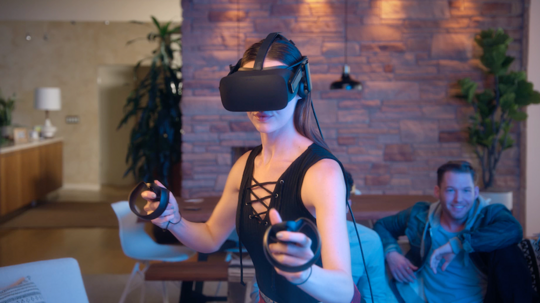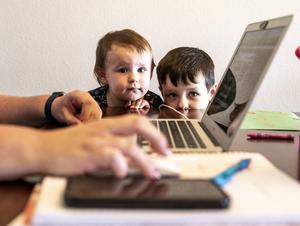
In our Inno Autopsy series, Chicago Inno talks to founders about startup failure. Have a failure story we should cover? Email info@ChicagoInno.com.
Own less, live more. That was the motto of Chicago startup Bevy, a company that set out to let people rent things like camping gear, grilling equipment, virtual reality headsets and other items. The idea was simple: It's expensive to buy an entire camping set when you're only going camping once a year---if that. Why own when you could save money (and storage space) by renting?
Despite its best efforts, Bevy shut down in September after launching two years ago. Bevy founder Colin Keeley announced the news in a post-mortem on his blog, outlining some of the challenges the startup faced.
At its height, Bevy had eight employees, and it raised a small amount of outside funding from angel investors. It participated in the University of Chicago's New Venture Challenge startup competition when Keeley was a student at UChicago's Booth School of Business.
The startup found some early wins by acquiring customers via Google Ads and landing corporate clients who wanted to rent VR headsets for events. But ultimately, market timing, heavy up-front costs, and an inability to create repeat customers kept Bevy from gaining the traction it needed to sustain the business.
In this Inno Autopsy, Chicago Inno interviewed Keeley, who is now an investor at an early stage VC, about why Bevy closed its doors.
What did Bevy aim to be?
At a high level, we would provide everything you need for different experiences. We would curate all the gear you need to go camping one weekend—a super nice tent, sleeping bag, sleeping pad, flashlights, marshmallow sticks.
The next weekend you might have a friend in town and you need an air mattress. We’ll give you a really nice air mattress, towels, linens. If you want to have karaoke that night, we’ll give you a super nice karaoke set up. Basically all the stuff you’re storing in your closet that you’d prefer to access instead of own—that's what we were offering.
What was Bevy’s biggest milestone or success?
We started to get some large corporate orders for virtual reality sets. We were kind of like, ‘Man this is our average week in one night.’
We also landed some relationships with multi-family buildings downtown where they would send promotions out for us.
How would you describe the state of the business one year ago?
On the customer acquisition front, we were having a lot of success getting those initial customers. We had a lot of success with Google Ads. People are always Googling “camping supply rental” or “renting camping tent,” and REI doesn’t offer that in Chicago, so we had some early wins there where there wasn’t any competition and it was pretty clear demand.
Some of the things we were seeing that were somewhat problematic was utilization across our spectrum of experiences was not where we wanted it to be. And repeat usage was a problem. People just weren’t coming back. There were some hints around problems there. But we were getting more and more customers so we kind of focused on what we were doing.
What were some early warnings signs Bevy wasn’t going to make it?
It was never going to be a business that was throwing off profits early on. I was able to get a little bit of money to buy initial inventory, get things off the ground. But it was always going to be a business that required some pretty solid capital, and I talked with basically all the VCs in Chicago and it was pretty clear that this was going to be something that was very difficult to raise money for anywhere. Definitely most places, but especially in Chicago where VCs are notoriously conservative and they don’t want to take, in addition to execution risk, business model risk. They are looking at investing in software startups with very high gross margins, and this weird experience startup is not fitting in that bucket they like.
I guess the other concern was, looking around at all the other (similar) startups, I heard through the grapevine that they’re all struggling. No one’s really cracked this market. It’s a larger trend of the market being problematic.
What ultimately led to the decision to shut Bevy down?
I think it was kind of clear that as it was set up, it wasn’t really working. And I was looking at shifting to a peer-to-peer model where we had supply to get off the ground. I was exploring all of the other startups that had tried it in the past. I found myself convincing myself how it could work instead of why it will work. And I didn’t believe in the market.
I think a problem a lot of startups have is they pivot within market too often. There's actually very few startups that are able to do that to the point of success. You really are looking at doing a hard pivot to a different market if you really want to be successful. I just didn’t have it in me. I was kind of burnt out.
"Being a startup founder sucks. It's super hard. You’re getting punched all the time."
Looking back, could shutting down have been avoided in any way?
I think it's always easy to become like a zombie startup. And you just keep doing it, making a little bit of money. There's people that have built nice small businesses in this kind of rental space. But there's no one that has really done it at venture scale. I didn’t see a path forward, and it's not clear to me that anyone else in this space has figured it out either. I didn’t really see a future there.
What were the biggest lessons learned from the experience
The importance of markets is probably the biggest one. I guess I’ve learned that as I’ve spent more time in venture capital and how focused we are [on] looking at markets.
Describe what you're doing now? How have you taken what you’ve learned to start something new?
I'm working in early stage venture capital. The biggest advantage from being a founder is that you have a hell of a lot more empathy for people sitting on the other side of the table.
How has the experience personally affected you, whether emotionally or financially? What toll did shutting down take on you?
The actual act of shutting down was a bit of a relief just to be done with it. Being a startup founder sucks. It's super hard. You’re getting punched all the time. There were definitely times where I was doing some deliveries and I was having issues with coordinating with customers, and it's just like, what am I doing? I’m a low-paid Uber driver. And thinking, this is a pretty crappy way to spend a summer.
This interview was edited for clarity and length.








